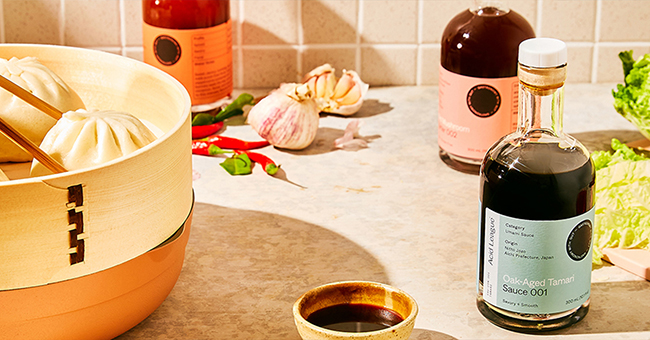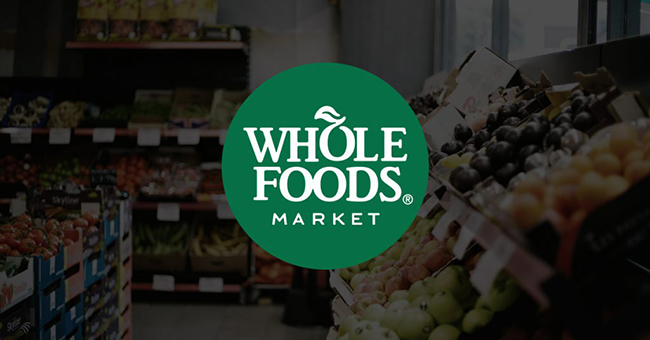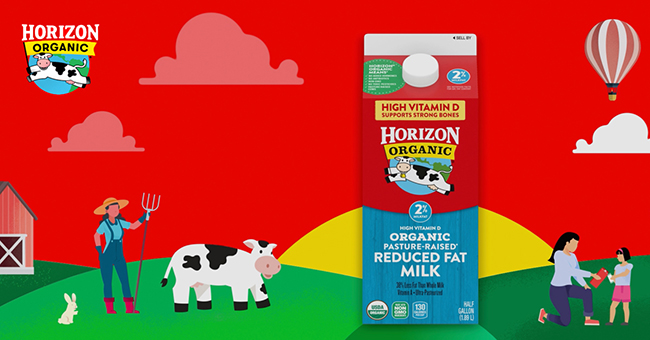NOSHscape: The Latest Food Brand News
Acid League Closes Online Store to Focus on International Retail Growth
Condiment and beverage brand Acid League is closing its online store at the end of January, pivoting to focus on the expansion of its international retail line.
In a statement posted on its website, the Toronto-based company said maintaining an online inventory of 17 different products – each SKU requiring its own rare and unique ingredients – while simultaneously expanding an international retail line of 28 other products became “totally unsustainable.”
According to co-founder and chief product officer Allan Mai, Acid League agonized over the decision for months, as the brand’s ecommerce site is “such a pure expression of who we are.” In the end, the brand’s decision was rooted in economics.
Acid League’s online products became too expensive to produce due to factors like inflation and updated iOS terms, Mai said, which compounded in such a way that was unsustainable. Though the brand’s director-to-consumer business was smaller than its retail side, the use of specialized ingredients made its management more complex.
“Ultimately, a business needs to scale at one point in order to have enough money to reinvest into the business and continue its mission,” Mai explained to Nosh in an email. “We were over-indexed on putting out so many products that it got in the way of us developing the distribution that would allow more people to access our offerings.”
Additionally, consumers expressed frustration over difficulty getting their hands on Acid League’s products, either because they were often sold out online or because retail assortment was inconsistent. To offset the closing of its online store, Mai said the company will expand its brick-and-mortar distribution throughout North America.
“Regrettably, we know that for some people right now the online store is the only place they can buy our products, and we are gutted [by] this reality, but our hope is that by focusing on getting into more retailers we’ll be able to show up where they grocery shop soon enough,” he said.
Launched in 2020, Acid League produces a portfolio of hot sauces, mayos, ketchup, BBQ sauces, salad dressings, cooking sauces, beverages and, most recently, time-saving shortcut sauces. In 2022, the Toronto-based brand closed a $6.2 funding round aimed at supporting expansion into new product categories and strengthening its manufacturing and marketing efforts. To date, the company has raised approximately $11.5 million, reporting revenues upwards of $10 million.
There is still hope for the online store. According to Mai, the team initially considered simply raising prices on its existing site before quickly pivoting to envision what “DTC 2.0” will look like for the company. As for Acid League’s online-exclusive products, the brand hopes several community favorites will eventually make their way into retail.
Acid League isn’t the only DTC-born brand eliminating its online store in favor of sales in the physical realm: In December, tahini brand Soom shut down its digital storefront as DTC accounted for just 5% of the brand’s revenue, but 24% of its warehouse’s workload consisted of packing orders.
But Soom isn’t ditching omnichannel just yet; the products will remain available on Amazon, Thrive Market and Misfits Market.
Though Acid League plans to dive back into innovation eventually, its current focus is on retail, where supply chains are more predictable and the company can better keep up with consumer demand. Currently, the brand’s products are available at retailers such as Harmons, Sprouts and Whole Foods Market, among others.
“At the end of the day, we decided we had enough products to share, and although we’ll get back to developing new products, that we should focus in the immediate future on making our products as easy to grab [as possible] for more people,” said Mai.
Whole Foods Updates Forager and Local Brand Designations
Whole Foods Market has modified the definition of its Forager, Local and Global brand designations, bringing increased clarity between the former two emerging brand-focused programs.
The move follows a slate of organizational structure updates from the Amazon-owned natural retailer, which redrew its regional map in April.
To now qualify as a Forager brand, a supplier must sell its products in about 50 stores or less. During a supplier summit presentation earlier this month, Lee Robinson, VP of Merchandising for Grocery, Refrigerated and Frozen, explained that local Forager teams will also complete an assessment of the brand prior to the final decision.
Forager brands benefit from reduced fees and waived expenses on retail costs like free fills and promotional spend. Brands continuing in the Forager program will receive a notice from Whole Foods by the end of the year and the local forager will remain the supplier’s primary point of contact.
Whole Foods will not accept requests for a brand to be designated as a Forager brand. Any brand that is sold in more than 50 stores will now be deemed a Global brand and the cost of maintaining their spot on shelf will follow Whole Foods’ standard fee structure.
Brands tagged as Local have also been given updated guidance: the definition now covers companies growing, raising or manufacturing their products within the state the product is being sold, or within 275 miles from the store. The company’s headquarters will also have to meet those requirements.
“We are committed to working with you on your growth path and will provide the right support along the way,” Robinson said.
Local brands will now automatically join the Forager program. Previously, brands selling in three Whole Foods regions or less could be considered a Forager brand while suppliers selling in more than four regions were considered Global brands.
By evolving the definition of a local brand, Whole Foods is also hoping to shift the focus from suppliers to products. According to Robinson, these changes were made in response to feedback garnered by its recent supplier Sentiment Survey.
“We’re also evolving our Local marketing to enhance the immersive local experience for our customers,” Robinson said. “We are reimagining how Local shows up through signage and other marketing efforts to connect customers to Local products available in new and more impactful ways.”
Danone to Divest Horizon Organic, Wallaby to Private Equity Firm
Danone has found a buyer for its premium dairy brands Horizon Organic and Wallaby, announcing in January it has agreed to sell the businesses to investment firm Platinum Equity.
The French multinational corporation previously said in January 2023 that it intended to divest its U.S. organic dairy portfolio review and asset rotation program, which had been announced in March 2022.
In a February 2023 report, the company said Horizon and Wallaby represented around 3% of Danone’s total revenues and “had a dilutive impact on Danone’s like-for-like sales growth and recurring operating margin in 2022.” However, in a press release, Danone CEO Antoine de Saint-Affrique said the brands “fell outside” its “priority growth areas.”
“Today marks an important milestone in delivering this commitment while giving the Horizon Organic and Wallaby businesses the opportunity to thrive under new leadership,” de Saint-Affrique stated. “This sale, once completed, will allow us to concentrate further on our current portfolio of strong, health-focused brands and reinvest in our growth priorities.”
Danone will keep a non-consolidated minority stake in Horizon. Financial terms of the deal were not disclosed.
A pioneer in organic dairy products, Horizon Organic launched its first USDA-certified organic milk in 1991 and today markets a full line of products including creamers, yogurt, cheese and butter. Danone acquired the brand in 2016 as part of its $12.5 billion purchase of WhiteWave Foods.
According to Circana, retail dollar sales of Horizon’s white milk were up 4.4% to over $665.8 million in the 52-week period ending October 8, 2023. Its ready-to-drink milk beverages were down -2.7% to $119.3 million and yogurts/yogurt drinks rose 63.5% to $8.1 million. That data is not representative of Horizon’s full line of products.
Wallaby Organic is an “Australian-inspired Greek-style yogurt” brand which produces a variety of flavored yogurts including whole milk and lowfat offerings.
Platinum Equity is a California-based private equity firm. According to its website, it manages a portfolio of assets worth over $47 billion across numerous industries, including European sweet biscuits maker Biscuit International, seafood provider Iberconsa, pet products brand Petmate, and the Detroit Pistons NBA franchise; Pistons owner Tom Gores serves as chairman and CEO of the firm.
“Horizon Organic is an iconic name in dairy that is well recognized and beloved by consumers,” Platinum Equity co-president Louis Samson said in a press release. “The brand has earned a reputation for quality and innovation that is unmatched in the industry. We appreciate Danone’s confidence in our ability to build on that legacy and support Horizon Organic’s growth as a standalone company.”
In the release, Platinum Equity managing director Adam Cooper stated that Horizon Organic will operate as an independent business.
“We have a lot of experience supporting food and beverage businesses,” Cooper said. “We look forward to partnering with Horizon Organic’s management team to ensure a seamless transition and chart a path for continued growth and expansion.”
Popping Into New Ownership: Legacy Popcorn Maker Acquired By Private Equity
The popcorn category got a shake-up in January as Weaver Holdings, the largest manufacturer of popcorn in the U.S., was acquired by AUA Private Equity Partners for an undisclosed amount.
According to a press release, West Palm Beach-based AUA aims to inject “efficiency” into Weaver and take the fourth-generation, family-owned business “to the next level” by adding capital resources and bringing executive experience to its board of directors.
“We are tapping into our bench of operating partners to enact meaningful change at the Company,” said VP of AUA Private Equity Charlie DeVries in a press release statement. “We’ve added Mike Tracy, formerly the SVP of Supply Chain at Conagra, and Ted Schouten, formerly the president of TruFood Manufacturing to the board of directors. Both individuals will help oversee the investment and augment governance.”
The announcement did not include details on any immediate changes to Weaver’s business or manufacturing structure.
AUA currently manages other CPG food manufacturers including Epic Baking Company, specialty food holding company Gourmet Culinary Partners, and Latinx branded and private-label dessert maker Raymundo’s. It has closed partnerships over the years with other CPG producers like Pittsburgh-based TruFood, Indulge Desserts Holdings and frozen Asian appetizer maker Water Lilies Fine Asian Cuisine.
Sales of ready-to-eat popcorn/caramel corn reached $2.1 billion in the 52-week period ending November 10, growing +9.3% year-over-year, according to Circana omnichannel data. Microwave popcorn sales rose 2.6% and kernel popcorn increased 8% during the same period.
Founded in 1928, Van Buren, Indiana-based Weaver is a private label manufacturer and co-packer of ready-to-eat popcorn, popping corn popcorn snacks and microwave popcorn for national brands and foodservice clients. The company also makes the Pop Weaver brand popcorn.
The popcorn category continues to rise for private label brands with sales up for microwave (2.3%) and kernel ((17.8%) in the last 52 weeks, according to Circana data. Yet, Pop Weaver’s microwave popcorn sales were down -6%, with volumes down -7.4%.
It has been a year of change for Weaver, which agreed to sell two co-packing facilities to The Hershey Company in April. The Bethlehem, Pennsylvania and Whitestown, Indiana facilities manufactured the SkinnyPop brand, owned by the chocolate and confectionery giant.
Hershey’s chief supply chain officer Jason Reiman said in a statement at the time it was part of the company’s plan to “continue to evolve our supply chain, making significant investments in the size, scale and capabilities of our network, improving resiliency” by controlling its manufacturing and prioritizing its snacking portfolio.
“By building on the foundation that the Weaver family put in place, AUA Private Equity will allow us to expand our capabilities operationally and increase the pace of product innovation,” Weaver CEO Jason Kashman said in a statement. “The resources that AUA Private Equity brings will ultimately benefit our customers and associates at Weaver.”


Receive your free magazine!
Join thousands of other food and beverage professionals who utilize BevNET Magazine to stay up-to-date on current trends and news within the food and beverage world.
Receive your free copy of the magazine 6x per year in digital or print and utilize insights on consumer behavior, brand growth, category volume, and trend forecasting.
Subscribe


